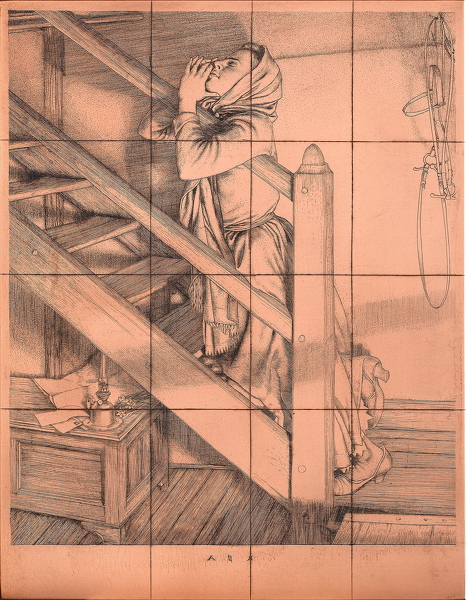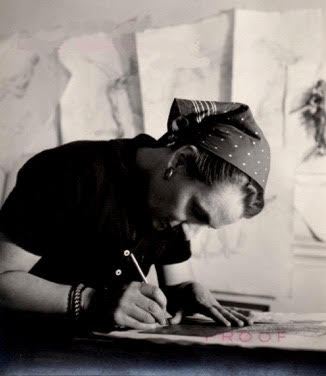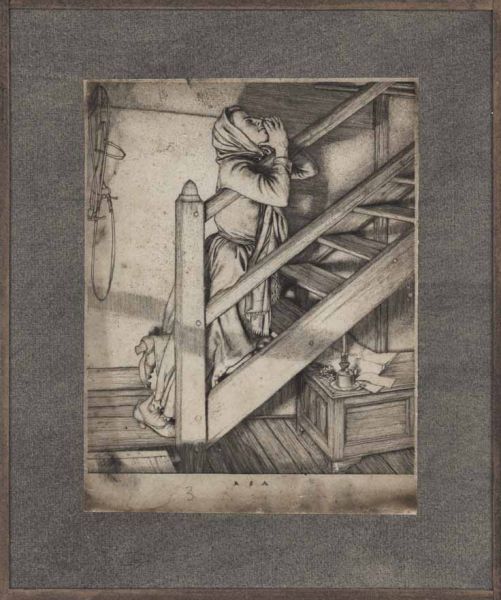

 Hover over the painting to magnify (there may be an initial delay while the magnified image is loaded)
Hover over the painting to magnify (there may be an initial delay while the magnified image is loaded)Robert Austin (1895-1973):
Evening, 1939
Passe-partout (ref: 3982)
Signed in the plate
See all works by Robert Austin etching plate religion war women World War II Paintings by British Artists
Provenance: Provenance: the artist’s family

photograph of Eleanor Hudson, circa 1940.

The Second World War virtually brought his printmaking to an end. Austin would take many months to complete a plate and the unsettling effect of the war forced not compromise but a halt to that activity. Besides, his teaching commitments with the RCA meant that he spent a lot of time travelling between London and the Lake District where the college had been evacuated. He made a few plates in the late 40's and early 50's but the wizening of his thumb prevented him from handling the burin effectively from 1951 onwards.
When he retired from the RCA professorship in 1955 Austin no longer had access to a press and he stopped making prints until 1963 when three magnificent but very late etching were made.
Peter Black, Robert Douwma Catalogue Twenty Nine, p 5
 Rome Scholars
Rome Scholars SOLD
SOLD




